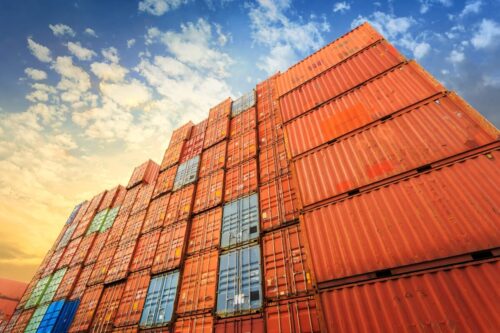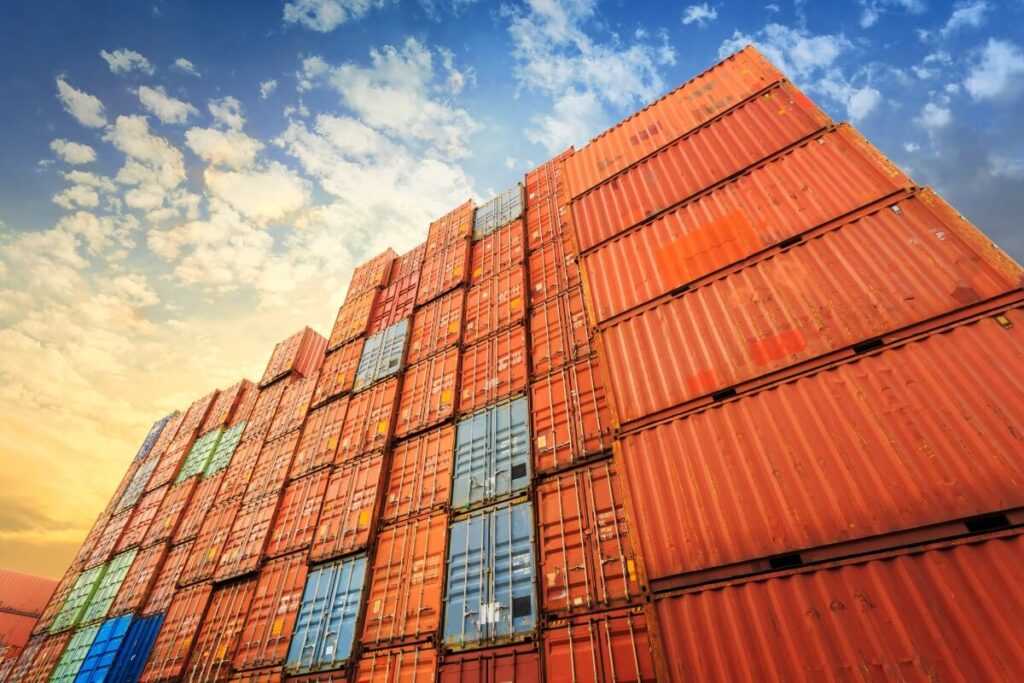The International Commercial Terms, better known as Inco-terms, are delivery terms established by the International Chamber of Commerce (ICC) and used worldwide in international purchase agreements. These terms define the responsibilities and obligations of buyers and sellers with respect to the delivery of the goods.
The six main Incoterms are EXW (Ex Works), FOB (Free on Board), CIF (Cost, Insurance and Freight), DAP (Delivered at Place), DDP (Delivered Duty Paid) and FCA (Free Carrier). The terms also determine which party bears the risks and costs at the various stages of transportation. New versions of them are made all the time; the latest version is from the year 2020, and by now Inco-terms play an indispensable role in the international transportation of goods.
It is good to be clear in advance who bears the transportation costs, who is responsible for insurance and when the risk of damage or loss passes from seller to buyer. Clarity in advance prevents delays and the emergence of disputes between the parties involved. Below we discuss the 6 most commonly used Inco-terms based on the latest version of the Inco-terms.

FREE WHITE PAPER
Reduce Total Cost of Ownership (TCO) with the Kraljic Matrix
EXW (Ex Works)
EXW (Ex Works or ex factory) means that the seller fulfills its obligations by making the goods available at its premises, such as a factory or warehouse.
From that point, the buyer is responsible for all further costs and risks, including loading the goods, transportation, insurance and customs formalities. EXW is often used in situations where the buyer wants full control over the shipping process. With EXW, the seller has the fewest obligations, which means the buyer must have a good understanding of the logistical and administrative processes to avoid any problems.
FOB (Free on Board)
FOB means that the seller is responsible for delivery of the goods aboard the vessel. Risk passes to the buyer as soon as the goods are loaded on the vessel. Once the goods are on board, the risk passes to the buyer. This Incoterm is often chosen by buyers who want to arrange their own transportation after the goods are loaded. Clear agreements about the port of shipment and responsibilities during loading are important to avoid misunderstandings, delays and extra costs.
CIF (Cost Insurance and Freight).
With CIF, the seller pays the cost and insurance all the way to the port of destination. However, the risk already passes to the buyer as soon as the goods are brought on board the ship. CIF offers buyers greater security because the seller is responsible for insurance during transportation, which reduces financial risks in the event of damage or loss. This Incoterm is widely used in overseas trade.
DAP (Delivered at Place)
DAP means that the seller delivers the goods to the agreed destination. The buyer pays import duties and other customs charges, but the seller is responsible for all costs and risks up to the time of delivery. DAP is ideal for buyers who want to receive goods at a specific location without having to worry about the logistics of transportation. It is important that the seller and buyer make clear agreements about the exact place of delivery and the division of responsibilities in the event of any customs formalities.
DDP (Delivered Duty Paid)
DDP means that the seller is responsible for delivery of the goods at the destination, including payment of all import duties and taxes. With this Incoterm, the seller assumes maximum responsibility. The seller pays all costs, including transportation, insurance and import duties, up to the destination. All the buyer has to do is take delivery of the goods. DDP is ideal for buyers who want to outsource all logistics concerns. However, it requires the seller to be well informed about the import procedures and costs in the destination country.

Free whitepaper
Project Procurement in the Machine Building Sector
FCA (Free Carrier)
With FCA, the seller delivers the goods to a carrier designated by the buyer. Risk passes to the buyer as soon as the goods are handed over to the carrier. This Incoterm offers much flexibility when it comes to the arrangements between parties and is often used in multimodal transport. It is important that both parties make clear agreements about the place of delivery and responsibilities during the transportation process.
Choosing the correct Incoterm
Choosing the right Incoterm is essential to the smooth running of international shipments. Incoterms divide transportation costs and the risk of loss and damage between buyer and seller and play a crucial role in logistics planning. The wrong choice can lead to unnecessary costs, delays and legal disputes.
EXW and FOB are often chosen when trading within the EU because of easy liability allocation. CIF and DDP offer more security in overseas shipments because of the clearer spread of risk. Understanding the differences between all Incoterms and their application can help companies conduct international trade transactions more efficiently and with lower costs.
Find a buyer through xentys
At xentys, your experienced procurement recruitment agency, we are happy to help you find the right professional for your procurement team. Send a message today and strengthen your purchasing department.
The importance of insurance and proper documentation
An important aspect of the Incoterms that we will mention briefly separately is the insurance of the goods. CIF and CIP (Carriage and Insurance Paid) both require the seller to obtain insurance for the goods. This provides additional assurance to the buyer that any damage in transit is covered. In addition, all parties involved should carefully manage relevant documentation, such as commercial invoices and shipping documents, to ensure compliance with the chosen Incoterm.
Take action and check our procurement vacancies
The complexity of international transportation and the need for detailed knowledge of Incoterms make procurement and supply chain management especially challenging here. Therefore, at Xentys, we are constantly looking for professionals who can bring this expertise to our clients.
Do you happen to be an expert in purchasing strategies, international transportation or supply chain management? Then check out our jobs page and take your career to a new level. We have interesting vacancies with salaries starting from EUR 60,000 and other attractive benefits. We mediate for both permanent and interim positions and work on an exclusive basis for a number of positions. This means you won’t find these positions on a job board. So if you want to make a difference in the world of international transportation and logistics, contact us. We would love to hear from you!
News

What is the meaning of SKU?
A SKU, or Stock Keeping Unit, is a unique code used to identify a specific product that is in stock. This alphanumeric code is indispensable for inventory management and logistics operations, as it allows products to be tracked and managed. SKUs can contain information about a product’s attributes, such as

What is meant by the 80/20 rule?
The 80/20 rule, also known as the Pareto principle, is an economic rule that states that 80% of all results come from 20% of all efforts. This rule was first introduced by Italian economist Vilfredo Pareto, who discovered that 80% of the land in Italy was owned by only 20%

What does 3PL & 4PL mean?
The terms 3PL (Third-Party Logistics) and 4PL (Fourth-Party Logistics) play an important role in supply chain management today. But what exactly do those terms mean? 3PL refers to a logistics service provider that outsources specific logistics functions, such as transportation, warehousing and distribution, to an external party. These service providers

What is a freight forwarder?
A freight forwarder, also known as a forwarding agent, is an essential link in the logistics chain. This party organizes and coordinates the transportation of goods from one location to another. In this context, the necessary means of transportation, such as trucks, ships or aircraft, must be arranged and






